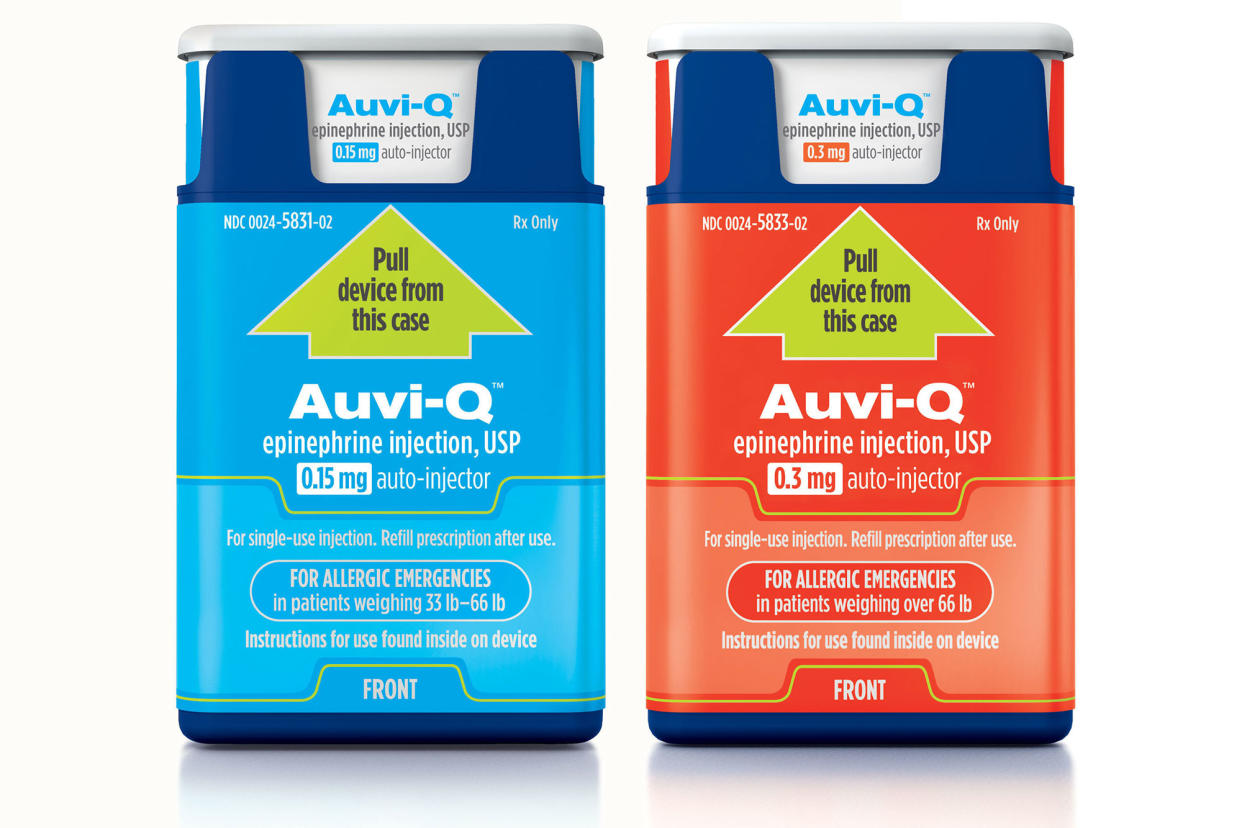EpiPen Rival is Back to Provide a Cheaper Option for Patients Faced with Skyrocketing Costs

It’s been nearly three months since Mylan, the company that owns EpiPen, controversially raised the price of a two-pack to more than $600. Now its main competitor is coming back on the market.
Kaleo Pharmaceticals is reintroducing Auvi-Q for 2017, and hopes to offer the epinephrine auto-injector at a lower price than the EpiPen.
“It is not in the best interest of patients or physicians to have high out-of-pocket costs,” Spencer Williamson, Kaleo’s president and chief executive, tells Forbes. “We’re engaging with all of the stakeholders — wholesalers and pharmacy benefits managers — to insure that we can provide this innovative technology to patients and that they can afford it. And we are going to assure that the out-of-pocket is going to be low for patients.”
One of the only alternatives to the EpiPen, the Auvi-Q was pulled out of production last year. It wasn’t as widely known as its competitor, reporting just 353,589 prescriptions in 2015 (the company’s best year), compared to EpiPen’s 3.4 million. Additionally, Sanofi, which owned the rights to the Auvi-Q at the time, received a few reports that the injector wasn’t delivering enough medication.
RELATED VIDEO: EpiPen Maker Under Fire After Hiking Price of Live-Saving Injector to Over $500
While the Auvi-Q design hasn’t changed, Kaleo has revamped production to be fully automated with 100 quality control checks, according to NPR. The Auvi-Q is smaller than the EpiPen, and is about the size of a credit card, with the thickness of a smartphone. It also features audio instructions that some users may find helpful during an allergic attack.
Mylan, which is currently under investigation by Congress for a 500% price hike since taking over the life-saving product in 2007, announced in August that it will introduce a generic version of the EpiPen, priced instead at $300 for a two-pack.
“We understand the deep frustration and concerns associated with the cost of EpiPen to the patient, and have always shared the public’s desire to ensure that this important product be accessible to anyone who needs it,” Mylan’s CEO, Heather Bresch, said in a statement shared with PEOPLE.
Kaleo intends to sell the Auvi-Q at an affordable price, even for those without health insurance, and says the market competition between them and the EpiPen will help patients who need the life-saving product.
Eric Edwards — who invented the Auvi-Q with his twin brother after growing up with severe allergies to eggs, shellfish and nuts — is thrilled to see it back on the market.
“This is personal for us,” Edwards, now a vice president at Kaleo, tells Forbes. “I’m a patient who may have to respond with this product not only for myself but for my child, and we are committed to making sure that Auvi-Q is going to work during an allergic emergency.”

